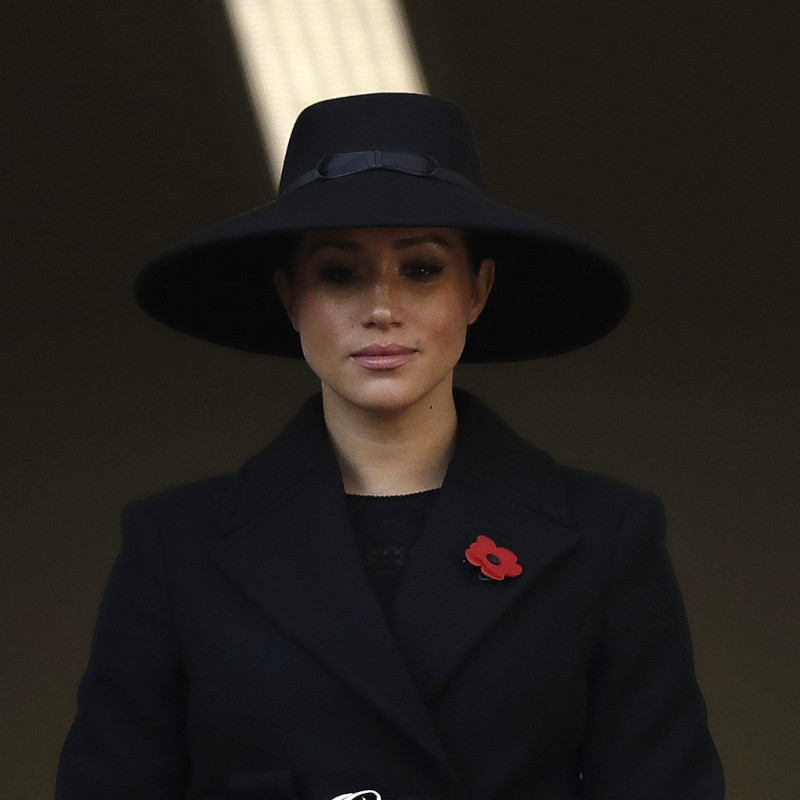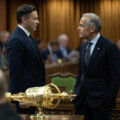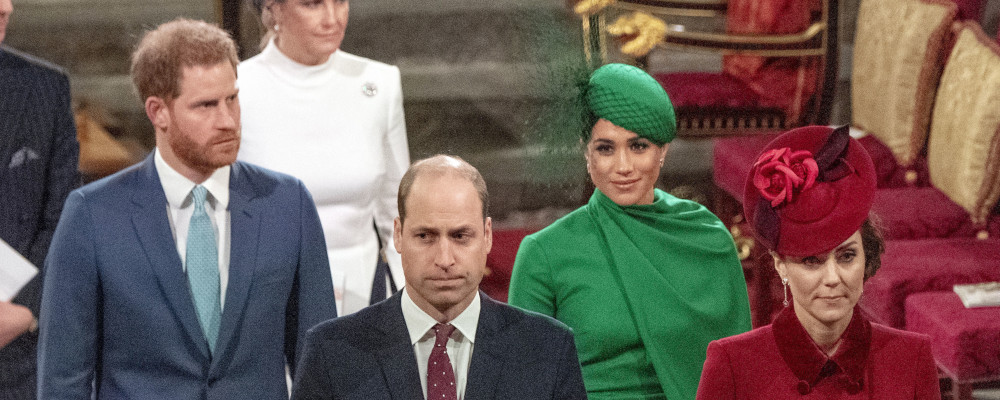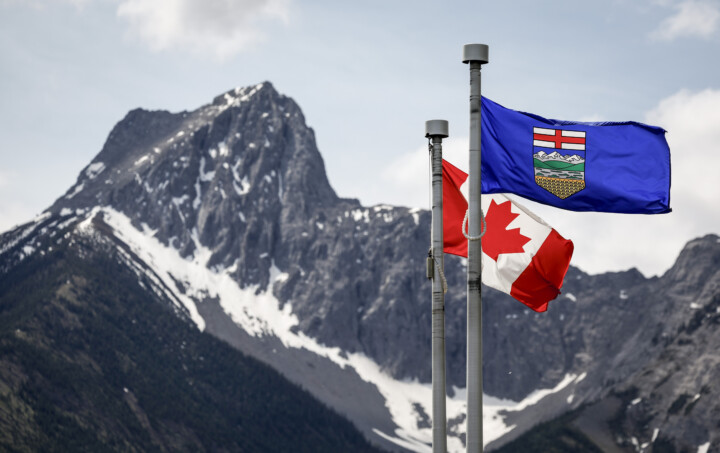Anyone looking for case studies in the decline of our vital institutions can always count on the Crown for some reliable examples.
The recent sagas of former Governor General Julie Payette, who resigned under fierce public pressure, and Meghan Markle, who stepped down with her husband Harry as members of the royal family, have shown us how even our oldest and sturdiest institutions can buckle under the weight of the times.
When Justin Trudeau announced Payette was to become the next governor general, the former astronaut was an unorthodox pick. Trudeau bypassed the viceregal appointments committee, went back to the old personal selection process and touted Payette as the person to “modernize” the viceregal office.
But it’s clear that in a rush to make a glitzy progressive appointment Payette wasn’t properly vetted. Moreover, as reporting revealed as early as 2018, Payette was uncomfortable with the expectations and duties of the office, and after becoming governor general Payette seemed totally unwilling to bend herself to the role that was expected of her.
Part of what is expected of governor general, and any representative of the Crown, is that they remain above the fray of politics. As a symbol of permanent power and legitimacy the Crown must remain out of partisan and political disputes. Governments may be political, but the Crown is not.
Just after she was appointed to the role, Payette was the keynote speaker at a convention where she attacked people who denied the human role in climate change and despaired at people “still questioning whether life was a divine intervention or whether it was coming out of a natural process.” These might seem like perfectly sensible remarks to you, but for a representative of the Crown to make them was completely inappropriate and represented a failure on Payette’s part to remain above the fray. She also reportedly requested policy discussions with ministers.
These formalities, pointless as they may seem to some, remind the prime minister that their power is limited and that they ultimately serve not just the monarch, but all of us. That we’ve never had a prime minister who has seriously tested the limits of their power is a testament to the strength of this system and a reason to think seriously before trying to alter it.
Both Payette and the government failed to recognize who and what the role demanded and damaged public trust because of it.
Unlike Payette, Meghan Markle is deserving of some real sympathy. It’s clear from what has emerged since her departure from royal life that the Duchess had to endure unacceptable treatment. But it’s also clear that Markle entered royal life without fully understanding the world she was getting into. As a very good essay in The Atlantic recently put it “[p]art of Meghan’s problem was her naïveté about the workings of the Royal Family, which she had assumed would be similar to the workings of celebrity culture.”
One can have sympathy with the Sussexes and still find their behaviour frustrating and disappointing
Shortly after her wedding, Markle stirred controversy when it emerged she had broken royal protocol while in Ireland by expressing her agreement with the legalization of abortion in the country to an Irish Senator. Again, regardless of what you think about her position, royals should not be in the business of making their political opinions known. This could have been chalked up as a rookie mistake, but a pattern of behaviour since becoming Duchess and subsequently leaving royal life suggests that Markle very much saw it as a platform to boost her profile.
The couple failed in their attempt to trademark the Sussex Royal name and when they announced their decision to step down they declared their intention to “carve out a progressive new role” in the monarchy. All this suggests they wanted to use their positions as platforms. Denied this opportunity, Markle and Harry have since moved on to a new life in America, with (silly) speculation that Markle wants to run for president in 2024 and Harry taking on a variety of new roles as the Chief Impact Officer of a Silicon Valley startup and as a commissioner at the Aspen Institute to “tackle misinformation in the media.”
One can have sympathy with the Sussexes and still find their behaviour frustrating and disappointing. Luxurious as it may be, the life of a royal is not an easy one. It demands a sense of duty and restraint that all of us would find challenging. But the behaviour of the Sussexes suggests they were both unwilling to be moulded to this. The desire to retire from public life would be understandable as well, but instead the couple seem eager to embrace their role as American celebrities with little regard for any damage they do to the Crown in the process.

They’ll be lauded by many who will say they are challenging a colonial institution that needs to be dismantled. But in doing so they reveal a serious challenge all public institutions face now. When members and representatives of institutions treat institutions as platforms to boost their profile they undermine the functions and reasons that we have to trust these institutions.
In his recent book A Time to Build the American conservative intellectual Yuval Levin suggests that what ails modern American institutions is that their participants no longer see them as something that has the right or obligation to mould them. Levin suggests institutions are increasingly just platforms that people can use to gain attention and promote their personal brand, which over time destroys public trust and legitimacy.
The Crown is a valuable symbol and it’s an institution that demands a lot from its representatives. But the virtues the Crown demands of its representatives aren’t just ones that are good for the health and legitimacy of the Crown itself, they are virtues that benefit society as a whole.
The stoicism and dignity with which the Queen carries out her duties is precisely what has made her so widely respected and admired. Perhaps one reason she is so admired is that the Queen feels like an increasingly rare figure.
We live in an age when authenticity, self-expression, and emotivism are celebrated often at the expense of any other virtue. The idea that we would allow ourselves to be moulded by an institution that might constrain this is alien to many of us.
Yet for our institutions, and society to flourish, we all at times need to practice these older habits and virtues. The Crown is no exception.
Recommended for You

Alberta Firewall: How the Alberta Agenda went from fringe to mainstream in 25 years

Party animal: A fascinating and frustrating look into the life of Pierre Trudeau’s political advisor

Carney and Poilievre agree on Canada’s biggest problems—now what?: The Weekly Wrap

‘His elbows are back up’: Hub Politics debates how transformational Carney’s Davos speech really was




Comments (0)